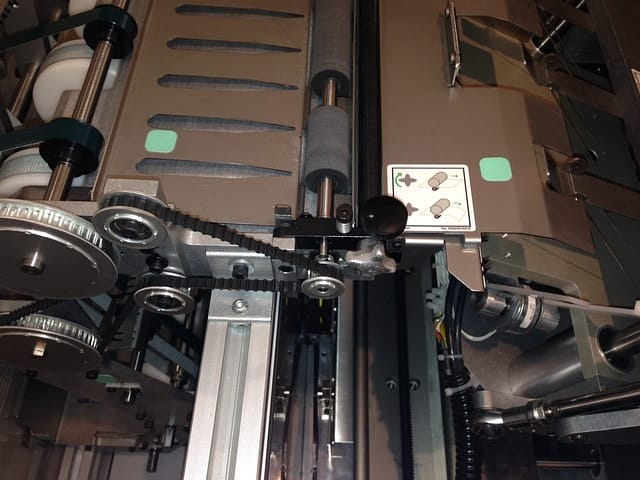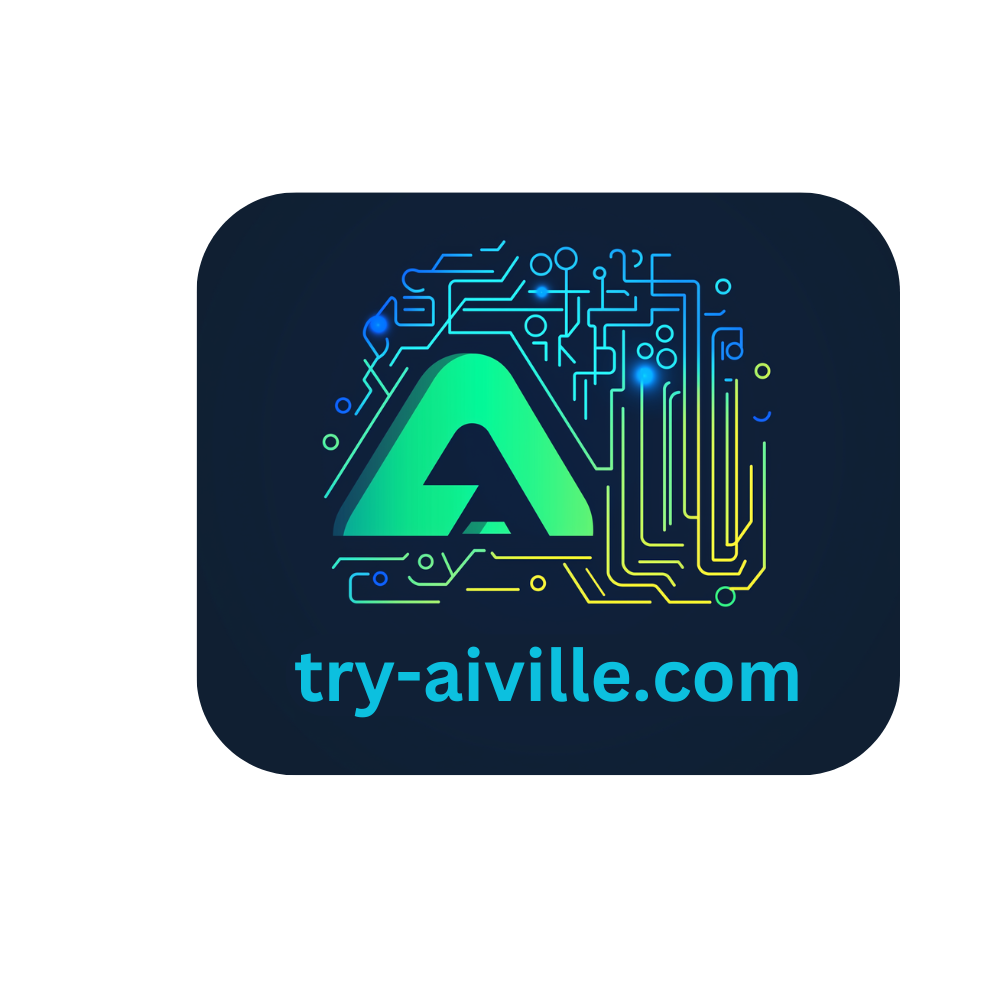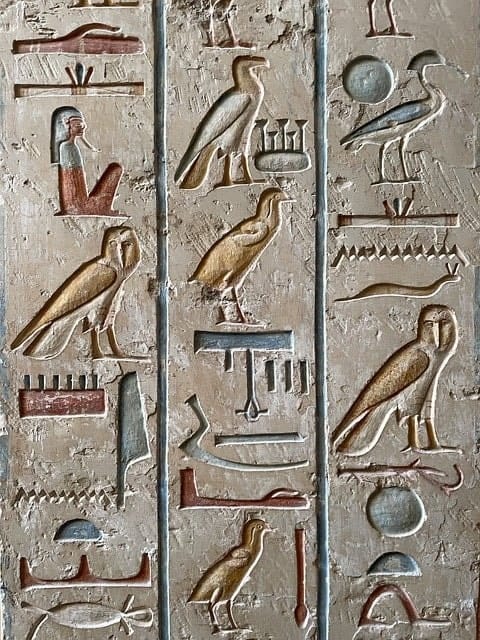Key Takeaways:
- Penn the Publishing Assistant: A revolutionary AI tool designed to streamline the creative writing and publishing process.
- Generative AI Tools: Enhance your writing with AI-generated content, offering new perspectives and ideas.
- Practical Applications: From fiction writing to marketing strategies, Penn provides invaluable support across various writing tasks.
Introduction to Penn the Publishing Assistant
In the bustling town of Aiville, where creativity meets technology, Penn the Publishing Assistant stands as a beacon for writers and publishers alike. This AI tool, a marvel of modern technology, is designed to make the lives of writers easier by providing assistance in crafting the written word. Whether you're a seasoned fiction writer or a novice blogger, Penn offers a suite of features that cater to your specific needs.
Penn is not just another AI tool; it's a companion in your writing journey. With its ability to generate content, provide writing prompts, and even assist in creating marketing strategies, Penn is a versatile assistant that adapts to your style and preferences. As we delve deeper into the functionalities of Penn, you'll discover how this AI engine can transform your writing process and help you achieve your publishing goals.
Understanding AI Tools in Creative Writing
Artificial intelligence has revolutionized the way we approach creative writing. With tools like Penn, writers can now explore new dimensions of storytelling and content creation. These AI tools are equipped with large language models that can generate text based on specific prompts, offering writers a fresh perspective and new ideas to incorporate into their work.
The beauty of AI-generated content lies in its ability to mimic human narration while providing unique insights. For fiction writers, this means having a virtual assistant that can suggest plot twists, develop characters, and even create dialogue. For bloggers and content creators, AI tools can help generate engaging blog posts and articles that resonate with readers. The possibilities are endless, and Penn is at the forefront of this technological revolution.
The Role of Generative AI in Publishing
Generative AI tools like Penn are changing the landscape of publishing. By automating certain aspects of the writing process, these tools allow writers to focus on what they do best: creating compelling stories and content. Penn's AI engine can assist with everything from drafting the first version of a manuscript to refining the final product, ensuring that your work is polished and ready for publication.
In addition to content creation, generative AI tools can also aid in marketing and distribution. By analyzing data and trends, Penn can help you develop a marketing strategy that targets your audience effectively. Whether you're self-publishing or working with a traditional publisher, Penn provides the insights you need to succeed in the competitive world of publishing.
How to Use Penn for Fiction Writing
Fiction writers often face the challenge of developing original ideas and maintaining a consistent narrative voice. Penn the Publishing Assistant can help overcome these hurdles by providing writing prompts and suggestions tailored to your style. With its natural language generation capabilities, Penn can generate dialogue, plot ideas, and even entire scenes, giving you the creative boost you need to bring your stories to life.
Using Penn is as simple as inputting your ideas and letting the AI engine work its magic. Whether you're writing a novel, a short story, or a children's book, Penn can adapt to your needs and provide the support you require. By leveraging the power of AI, you can enhance your creative process and produce work that captivates your audience.
Enhancing Blog Posts with AI-Generated Content
Blogging is an art form that requires a delicate balance of creativity and information. With Penn, bloggers can enhance their content by incorporating AI-generated text that adds depth and variety to their posts. Whether you're writing about technology, lifestyle, or any other topic, Penn can provide fresh perspectives and ideas that engage your readers.
The key to successful blogging lies in understanding your audience and delivering content that resonates with them. Penn can help you achieve this by analyzing reader preferences and suggesting topics that align with their interests. By using AI-generated content, you can create blog posts that are not only informative but also captivating, ensuring that your readers keep coming back for more.
Leveraging AI for Marketing Strategies
In today's digital age, a strong marketing strategy is essential for any writer or publisher. Penn the Publishing Assistant can help you develop a marketing plan that targets your audience effectively and maximizes your reach. By analyzing data and trends, Penn can provide insights into what works and what doesn't, allowing you to make informed decisions about your marketing efforts.
Whether you're promoting a new book, a blog, or any other type of content, Penn can assist with everything from social media campaigns to email marketing. By leveraging the power of AI, you can create a marketing strategy that not only reaches your audience but also resonates with them, ensuring the success of your publishing endeavors.
Creating Compelling Narratives with AI
Narrative is the backbone of any great story, and Penn the Publishing Assistant can help you craft compelling narratives that captivate your audience. With its natural language generation capabilities, Penn can suggest plot twists, develop characters, and even create dialogue, giving you the tools you need to create engaging stories.
Whether you're writing fiction, non-fiction, or any other type of content, Penn can adapt to your style and provide the support you need. By using AI-generated content, you can enhance your storytelling and produce work that resonates with your readers, ensuring that your narratives are both compelling and memorable.
The Future of AI in Creative Writing
As technology continues to evolve, the role of AI in creative writing is only set to grow. Tools like Penn the Publishing Assistant are paving the way for a new era of content creation, where writers can leverage the power of AI to enhance their work and reach new heights. By embracing these tools, writers can unlock new possibilities and explore new dimensions of storytelling.
The future of AI in creative writing is bright, and Penn is at the forefront of this revolution. By providing writers with the tools they need to succeed, Penn is helping to shape the future of publishing and redefine what it means to be a writer in the digital age.
Practical Examples of AI in Action
To truly understand the power of Penn the Publishing Assistant, it's helpful to look at practical examples of AI in action. From fiction writers using AI-generated content to enhance their stories to bloggers leveraging AI tools to create engaging posts, the possibilities are endless.
One example is a fiction writer who used Penn to generate dialogue for their novel. By inputting their ideas and letting the AI engine work its magic, they were able to create realistic and engaging dialogue that brought their characters to life. Another example is a blogger who used Penn to generate blog post ideas and content, resulting in a significant increase in reader engagement and traffic.
Overcoming Challenges with AI Tools
While AI tools like Penn offer numerous benefits, they also come with their own set of challenges. One common concern is the potential for AI-generated content to lack the human touch that readers crave. However, by using AI as a tool rather than a replacement, writers can overcome this challenge and create content that resonates with their audience.
Another challenge is the potential for AI-generated content to be seen as inauthentic or unoriginal. To overcome this, writers can use AI tools to enhance their work rather than replace it, ensuring that their content remains authentic and true to their voice. By leveraging the power of AI, writers can overcome these challenges and create content that captivates their audience.
Exploring AI Narration and Voice Content
In the bustling landscape of creative writing, AI narration is like a trusty sidekick, ready to lend its voice to your stories. With AI tools like Penn the Publishing Assistant, fiction writers can transform their written word into engaging audio experiences. Imagine your children's books coming to life with human-like narrators, captivating young readers with every word.
This technology isn't just about reading aloud; it's about creating a voice that resonates with your audience. By leveraging AI-generated content, authors can gain insights into how their stories sound, making the lives of writers and readers alike easier and more enjoyable. AI narration also opens doors to new marketing strategies.
Picture this: a blog post transformed into a podcast, reaching audiences who prefer listening over reading. With Penn's AI engine, you can create voice content that complements your written art, expanding your reach across social media platforms. This approach not only enhances your marketing strategy but also provides a fresh way to engage with your audience.
As AI continues to evolve, the possibilities for integrating voice content into your creative endeavors are endless, offering a new dimension to the traditional publishing world.
Exploring AI Narration and Voice Content
In the bustling landscape of creative writing, AI narration is like a trusty sidekick, ready to lend a hand. With AI tools like Penn the Publishing Assistant, fiction writers can breathe life into their stories through natural language generation. Imagine crafting a children's book where the AI engine not only helps with the text but also creates images that captivate young readers. This technology is a boon for those seeking to enhance their storytelling with AI-generated content, making the written word more vibrant and engaging than ever before.
Voice content is another frontier where AI is making waves. Human narrators have long been the gold standard, but AI narration offers a fresh perspective. By leveraging large language models, writers can experiment with different voices and tones, creating a unique auditory experience for their audience.
Whether it's a blog post or a full-fledged audiobook, AI tools provide the flexibility to tailor the voice to suit the narrative. This innovation not only saves time but also opens up new avenues for creative expression, making the lives of writers easier and more exciting.
Exploring AI Narration: Breathing Life into Stories
In the bustling world of storytelling, AI narration is like a seasoned bard, weaving tales with precision and flair. With the help of large language models, fiction writers can now create narratives that resonate with readers on a deeper level. These AI tools are adept at generating content that mirrors human narrators, making the written word come alive.
For instance, when crafting children's books, AI-generated writing can introduce whimsical characters and enchanting plots, captivating young minds. This blend of technology and creativity offers writers a fresh perspective, transforming the way stories are told. AI narration isn't just about spinning yarns; it's about enhancing the storytelling experience. By utilizing natural language generation, writers can explore new dimensions of their craft.
Imagine a world where AI-generated content provides writing prompts that spark the imagination, or where machine learning models suggest plot twists that keep readers on the edge of their seats. This innovative approach not only supports fiction writers but also enriches the creative process, making it more dynamic and engaging. As AI continues to evolve, its role in storytelling will undoubtedly expand, offering endless possibilities for the written art.
Exploring AI Narration: Giving Voice to Your Stories
In the bustling world of storytelling, AI narration is like a trusty sidekick, ready to lend its voice to your tales. With the rise of natural language generation, fiction writers can now transform their written word into engaging audio experiences. Imagine your children's books coming to life with AI-generated voices, capturing the imagination of young readers. This technology isn't just about convenience; it's about creating a new dimension for your stories.
By using AI tools, you can craft narratives that resonate with audiences, making the written art more accessible and dynamic. AI narration isn't just a futuristic concept; it's a practical tool for today's writers. Whether you're working on a blog post or a full-fledged novel, AI can provide voice content that complements your creative vision.
For instance, Joanna Penn, a pioneer in the field, has explored how AI can enhance the storytelling experience. By integrating AI-generated content, authors can offer readers a unique blend of human and machine-generated narration. This approach not only enriches the story but also provides insights into how technology can make our lives easier, offering a fresh perspective on traditional publishing methods.
AI Tools for Crafting Marketing Strategies: A New Frontier
In the fast-paced business landscape, AI tools are like a compass guiding you through the maze of marketing strategies. These tools can analyze text-based data to create marketing campaigns that hit the mark. By leveraging machine learning and large language models, businesses can gain insights into consumer behavior, tailoring their strategies to meet specific needs.
Whether you're promoting a new book or launching a product, AI-generated writing can help craft compelling narratives that capture attention and drive engagement. The integration of AI in marketing isn't just about efficiency; it's about innovation. With AI, you can break down complex queries and create targeted content that resonates with your audience.
For example, using AI to generate blog posts or social media content can streamline your marketing efforts, allowing you to focus on creative ideas and storytelling. This approach not only saves time but also enhances the quality of your campaigns, providing a competitive edge in the ever-evolving market. By embracing AI tools, businesses can transform their marketing strategies, making them more effective and impactful.
AI Tools for Crafting Engaging Blog Posts
Crafting a blog post that captures attention is akin to painting a masterpiece; it requires the right blend of creativity and precision. AI tools, like Penn the Publishing Assistant, are revolutionizing this process by providing writers with AI-generated content that is both engaging and informative.
These tools can analyze complex queries and generate text-based data that aligns with the writer's vision. For example, when discussing new technology or marketing strategies, AI can offer insights that are both relevant and timely, ensuring the blog post resonates with its audience.
The beauty of using AI in blog writing lies in its ability to streamline the creative process. With the help of natural language generation, writers can quickly draft articles that are rich in content and free from plagiarism. This not only saves time but also enhances the quality of the final piece.
Moreover, AI tools can suggest keywords and phrases that improve search engine optimization, making the blog post more visible to readers. As AI technology continues to advance, its role in content creation will become increasingly vital, offering writers new ways to connect with their audience.
AI Tools for Crafting Marketing Strategies
In the fast-paced world of marketing, AI tools are like a secret weapon, helping businesses gain insights and craft effective strategies. Penn the Publishing Assistant can be a game-changer for creating marketing content that resonates with audiences.
By analyzing text-based data, AI models can identify trends and preferences, allowing marketers to tailor their campaigns with precision. Whether it's a social media post or a full-fledged marketing strategy, AI-generated content ensures that the message hits the mark every time.
AI's role in marketing extends beyond content creation. With machine learning and natural language processing, businesses can tackle complex queries and develop strategies that are both innovative and effective.
For instance, AI can assist in designing a book cover that captures the essence of the story, or even generate writing prompts that spark new ideas. This technology empowers marketers to think outside the box, creating campaigns that not only engage but also inspire. As AI continues to evolve, its potential to revolutionize marketing strategies is boundless.
AI Tools for Crafting Book Covers and Visual Content
In the vibrant world of publishing, a book cover is the first handshake with potential readers. With AI tools, creating eye-catching covers is no longer a daunting task. Penn the Publishing Assistant, equipped with generative AI, can help fiction writers and self-publishers design bespoke covers that capture the essence of their stories.
By using AI-generated images, authors can experiment with different styles and concepts, ensuring their book stands out in a crowded market. This technology allows writers to focus on their craft while AI handles the visual storytelling, making the process of self-publishing smoother and more efficient.
Beyond book covers, AI tools can also assist in creating visual content for marketing purposes. Imagine using AI to generate images for social media campaigns, enhancing your marketing strategy with visually appealing content.
With Penn's capabilities, authors can create marketing materials that align with their brand and story, without needing extensive design skills. This not only saves time but also ensures consistency across all platforms. As AI continues to advance, the integration of visual content into your creative projects will become increasingly seamless, offering new ways to captivate and engage your audience.
The Role of AI in Self-Publishing
Self-publishing has become an increasingly popular option for writers looking to take control of their publishing journey. With tools like Penn the Publishing Assistant, self-publishing has never been easier. By providing writers with the tools they need to create, market, and distribute their work, Penn is helping to level the playing field and make self-publishing accessible to all.
Whether you're a seasoned author or a first-time writer, Penn can assist with everything from drafting your manuscript to developing a marketing strategy. By leveraging the power of AI, you can take control of your publishing journey and achieve your goals, ensuring that your work reaches the audience it deserves.
AI and the Art of Storytelling
Storytelling is an art form that has been around for centuries, and AI tools like Penn are helping to redefine what it means to be a storyteller in the digital age. By providing writers with the tools they need to create compelling narratives, Penn is helping to shape the future of storytelling and unlock new possibilities for writers.
Whether you're writing fiction, non-fiction, or any other type of content, Penn can help you craft stories that captivate your audience and leave a lasting impression. By leveraging the power of AI, you can enhance your storytelling and produce work that resonates with your readers, ensuring that your stories are both compelling and memorable.
The Impact of AI on Traditional Publishing
Traditional publishing has long been the gold standard for writers looking to share their work with the world. However, with the rise of AI tools like Penn the Publishing Assistant, the landscape of traditional publishing is changing. By providing writers with the tools they need to create, market, and distribute their work, Penn is helping to level the playing field and make traditional publishing more accessible to all.
Whether you're working with a traditional publisher or self-publishing, Penn can assist with everything from drafting your manuscript to developing a marketing strategy. By leveraging the power of AI, you can take control of your publishing journey and achieve your goals, ensuring that your work reaches the audience it deserves.
AI and the Future of Content Creation
As technology continues to evolve, the future of content creation is only set to grow. Tools like Penn the Publishing Assistant are paving the way for a new era of content creation, where writers can leverage the power of AI to enhance their work and reach new heights.
By embracing these tools, writers can unlock new possibilities and explore new dimensions of storytelling. The future of content creation is bright, and Penn is at the forefront of this revolution. By providing writers with the tools they need to succeed, Penn is helping to shape the future of publishing and redefine what it means to be a writer in the digital age.
AI and the Evolution of the Written Word
The written word has been a cornerstone of human communication for centuries, and AI tools like Penn are helping to redefine what it means to be a writer in the digital age. By providing writers with the tools they need to create compelling narratives, Penn is helping to shape the future of the written word and unlock new possibilities for writers.
Whether you're writing fiction, non-fiction, or any other type of content, Penn can help you craft stories that captivate your audience and leave a lasting impression. By leveraging the power of AI, you can enhance your storytelling and produce work that resonates with your readers, ensuring that your stories are both compelling and memorable.
AI and the Art of Creative Writing
Creative writing is an art form that requires a delicate balance of creativity and information. With Penn the Publishing Assistant, writers can enhance their creative process by incorporating AI-generated content that adds depth and variety to their work.
Whether you're writing fiction, non-fiction, or any other type of content, Penn can provide fresh perspectives and ideas that engage your readers. The key to successful creative writing lies in understanding your audience and delivering content that resonates with them. Penn can help you achieve this by analyzing reader preferences and suggesting topics that align with their interests. By using AI-generated content, you can create work that is not only informative but also captivating, ensuring that your readers keep coming back for more.
AI and the Future of Publishing
As technology continues to evolve, the future of publishing is only set to grow. Tools like Penn the Publishing Assistant are paving the way for a new era of content creation, where writers can leverage the power of AI to enhance their work and reach new heights.
By embracing these tools, writers can unlock new possibilities and explore new dimensions of storytelling. The future of publishing is bright, and Penn is at the forefront of this revolution. By providing writers with the tools they need to succeed, Penn is helping to shape the future of publishing and redefine what it means to be a writer in the digital age.
FAQ
1. What is Penn the Publishing Assistant?
Penn the Publishing Assistant is an AI tool designed to assist writers in the creative writing and publishing process. With its natural language generation capabilities, Penn can generate content, provide writing prompts, and even assist in creating marketing strategies.
2. How can Penn help with fiction writing?
Penn can assist fiction writers by providing writing prompts and suggestions tailored to their style. With its natural language generation capabilities, Penn can generate dialogue, plot ideas, and even entire scenes, giving writers the creative boost they need to bring their stories to life.
3. Can Penn be used for marketing strategies?
Yes, Penn can assist with developing a marketing strategy that targets your audience effectively. By analyzing data and trends, Penn can provide insights into what works and what doesn't, allowing you to make informed decisions about your marketing efforts.
Summary
Penn the Publishing Assistant is a revolutionary AI tool that is transforming the way writers approach creative writing and publishing. By providing writers with the tools they need to create, market, and distribute their work, Penn is helping to level the playing field and make publishing more accessible to all.
Whether you're a seasoned author or a first-time writer, Penn can assist with everything from drafting your manuscript to developing a marketing strategy. By leveraging the power of AI, you can take control of your publishing journey and achieve your goals, ensuring that your work reaches the audience it deserves.
Your Friend,
Wade










